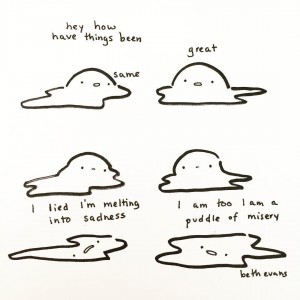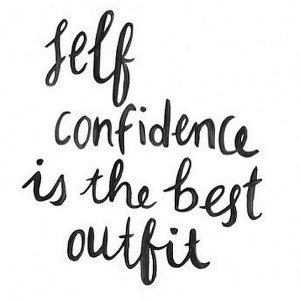In recent years there has been a lot of talk about normalizing therapy, coinciding with the recent uptick in mental health awareness, and for good reason. In this world of climate change, political hell, literal plague, and the hundred other disasters going on globally, I’m pretty sure that everyone can use a good therapist. You don’t have to suffer from mental illness to see a therapist; everyone’s life is full of daily anguishes– even if they seem “minor” or “petty,” they can still linger in your thoughts. The world of the college student is especially susceptible to this; problems that seem manageable on their own quickly and frequently gather until you are overwhelmed. But, a therapist can help you get through them! They should be someone who you are comfortable confiding in because they are isolated from all other facets of your life. The unfortunate catch with therapy, however, is that you have to be comfortable with them.
Not all therapists are created equal. Finding the right one can feel like going on a blind date, because you can never be quite sure what you’re going to get. A therapist can have the best credentials in the world, sometimes, your personalities just don’t quite mesh. In fact, it seems that many people tend to be unsatisfied with their therapy. Anywhere from 20 to 57% of patients don’t come back after their first visit, and of those who come back, 37-45% of them don’t come back after the second visit. Unfortunately, the number one most cited reason for client termination is dissatisfaction with their therapist. While that dissatisfaction could stem from any number of sources, the indication is clear: therapy is a service with high turnover, and you should expect to have some negative experience with your therapist/therapy. I don’t say this to discourage you from exploring therapy, because proper therapy with a well-fitting therapist will always be beneficial. Improving your mental health is an active process that requires dedication, a desire to better yourself, as well as someone or something to help guide you. For many, that person may be a therapist! That being said, here are some tips I can offer to those looking to enter the world of therapy.

- Don’t be afraid to keep your guard up. Therapy is a strange thing; there are not many times where you have a conversation with a total stranger about your inner thoughts and feelings. It’s uncomfortable– and it’s entirely valid to not want to immediately open up to your therapist. Most will understand this, but some will egg you on to let your guard down. Remember that you are the one paying for this service, and you should be comfortable vocalizing your desired pace with your therapist. If you don’t feel comfortable doing so, then perhaps it’s time to look for a new one.
- Beware the sunk cost fallacy. One reason people will stay with a therapist is that they believe that, because they’ve already invested so much time and money visiting one therapist, they should just commit to them– regardless of the quality of the therapy. This is known as the sunk cost fallacy, and while it generally refers to economics, it absolutely applies here. Opening up to a therapist about deeper traumas is an exhausting thing, and many will stay with their therapist only because they know so much about them. If, over time, you feel that your relationship with your therapist has changed for the worse for whatever reason, remember that therapy is supposed to be a beneficial process, but it can’t be beneficial if you don’t like your therapist.
- The path to recovery is never linear. This isn’t to say that, if you’re in therapy, you’re “damaged” in some way. Rather, “recovery” can refer to any difficulty you’re having, and discussing with your therapist. As you attend therapy you will discover aspects of yourself you’ve never noticed before, and sometimes that will be an unsettling experience. You will have highs and lows as you perceive yourself and your experiences in new lights, and it’s important to remember that just because you are feeling particularly “low” does not mean that your therapy is not working. Try to keep that in mind when and if you feel frustrated with the process. On the opposite side of the coin, if you have been feeling worse about your issues consistently, then maybe the process is not working for you.
- Your college probably has resources for you. Use them! Many college students can’t afford therapy. For me, therapy would cost $50 per session thanks to my incredible health insurance. As a result of that, I am ironically not in therapy at this moment. Thankfully, my college has counseling sources, as do many colleges across the states. If you can’t afford therapy, it doesn’t hurt to reach out to these sources; they will help you!
- Therapy might not be for you. But you should at least try it! In my opinion, the increased presence of therapy in popular culture is a great thing. Taking care of your mental health has tragically been stigmatized for a long time, but it has finally gained its legitimacy in the court of public opinion. As more people call for the normalization of therapy, it’s important to remember that not everyone is at the point where they will benefit from therapy. And that’s okay, too! But be careful not to use this as an excuse to avoid therapy. At least give it a try and see how you feel; if you’ve never tried it, how do you know it’s not for you?
You can find all of our active coupons at this link. Redeem them here:
By Sebastian Ortega
Sebastian is a student at the Fashion Institute of Technology, where he majors in Fashion Business Management. He’s worked behind the scenes of New York Fashion Week with the company Nolcha Shows, and in the office of Elrene Home Fashions. Someday, he hopes to be able to make his own claim in the fashion industry by starting his own business.
For over 20 years, the Campus Clipper has been offering awesome student discounts in NYC, from the East Side to Greenwich Village. Along with inspiration, the company offers students a special coupon booklet and the Official Student Guide, which encourages them to discover new places in the city and save money on food, clothing, and services.
At the Campus Clipper, not only do we help our interns learn new skills, make money, and create wonderful e-books, we give them a platform to teach others. Check our website for more student savings and watch our YouTube video showing off some of New York City’s finest students during the Welcome Week of 2015.













